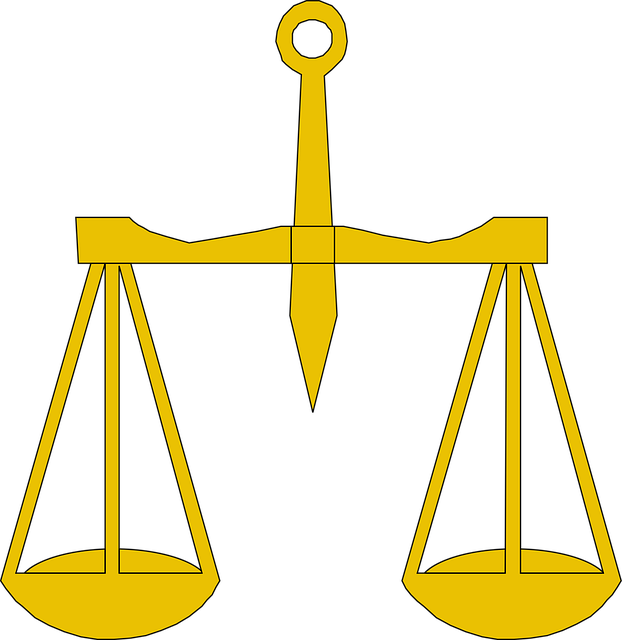Fraudulent financial practices necessitate vigilance and expertise to identify. Class action lawsuits offer a collective way for victims to seek justice and compensation, but understanding eligibility requirements is crucial. These cases require proof of substantial losses and fraudulent intent, with key factors including fraud's nature, extent, and number of affected individuals. Regulatory bodies deter fraud through guidelines, monitoring, and law enforcement, ensuring accountability and protecting investors. After uncovering fraud, affected parties must navigate legal avenues, engaging specialists for a class-action lawsuit if eligible, aiming for justice, loss recovery, and perpetrator accountability.
Fraudulent financial practices pose significant threats to individuals and institutions alike, eroding trust and destabilizing economic landscapes. This comprehensive guide delves into the intricate world of financial fraud, exploring its various forms and profound impacts. We dissect what makes a case eligible for a class action lawsuit, highlighting key eligibility requirements. Additionally, we examine regulatory roles in prevention and provide insights into navigating the legal process post-fraud discovery. Essential information for understanding and safeguarding against these insidious practices.
- Understanding Fraudulent Financial Practices
- What Makes a Case Eligible for Class Action Lawsuit
- Common Types of Fraud and Their Impact
- The Role of Regulators in Preventing Financial Fraud
- Navigating Legal Process After Fraud Discovery
Understanding Fraudulent Financial Practices

Fraudulent financial practices refer to a range of illegal or unethical activities designed to mislead individuals or entities for financial gain. These practices can take various forms, from accounting manipulation and false reporting to investment fraud and embezzlement. Understanding these schemes is crucial in order to protect oneself and one’s assets, especially when navigating complex financial transactions.
Identifying fraudulent behavior often requires a keen eye for detail and a thorough understanding of the relevant laws and regulations. Victims of such practices may include both corporate and individual clients, as white-collar and economic crimes can have devastating impacts on businesses and personal finances alike. Those who have been affected by these illicit activities may be eligible to participate in class action lawsuits, which offer a collective approach to seeking justice and compensation for harm caused by fraudulent financial practices.
What Makes a Case Eligible for Class Action Lawsuit

When considering a class action lawsuit for fraudulent financial practices, understanding the eligibility requirements is crucial. A case becomes eligible when a significant number of individuals have been affected by similar misleading or deceptive actions, often involving complex schemes that would be difficult for each victim to pursue individually. This collective harm forms the basis for a class action, where one representative plaintiff sues on behalf of all victims, simplifying legal processes and increasing potential compensation.
Key factors in determining eligibility include the nature and extent of the fraud, the number of affected individuals, and their ability to join as plaintiffs. The general criminal defense approach typically involves navigating all stages of the investigative and enforcement process, from gathering evidence to negotiating settlements or preparing for trials, with the ultimate goal of securing justice and financial redress for the aggrieved parties.
Common Types of Fraud and Their Impact

Fraudulent financial practices encompass a wide array of deceptive acts that have significant consequences for individuals, businesses, and even entire industries. Common types include investment scams, insurance fraud, and accounting manipulations. These schemes can range from sophisticated high-stakes cases involving large corporations to more straightforward deceptions targeting individual investors or policyholders. The impact of such frauds is profound; it erodes trust in financial markets, distorts competition, and can lead to severe economic repercussions for victims.
When a corporate or individual client falls victim to fraudulent activities, they may find themselves in a complex legal landscape. Class action lawsuits are often a crucial tool for holding perpetrators accountable and securing justice for affected parties. Eligibility requirements for these cases vary but typically involve demonstrating substantial financial losses and the intent to defraud. By pooling resources and sharing legal strategies, plaintiffs can enhance their chances of winning challenging defense verdicts and recovering damages in high-stakes cases.
The Role of Regulators in Preventing Financial Fraud

Regulatory bodies play a pivotal role in preventing financial fraud by establishing guidelines, monitoring transactions, and enforcing laws. They act as a crucial safeguard against fraudulent practices, ensuring that businesses operate transparently and ethically. These regulators employ various strategies to detect anomalies and investigate suspected cases of financial irregularities. This involves scrutinizing financial records, analyzing complex data patterns, and collaborating with law enforcement agencies across the country.
By implementing stringent measures and setting clear eligibility requirements for class action lawsuits, regulators can deter potential fraudsters. The investigative and enforcement process covers all stages, from initial suspicion to prosecution, aiming to hold accountable those who engage in deceptive financial activities. This comprehensive approach helps maintain the integrity of financial systems, protecting investors and consumers alike while ensuring a robust general criminal defense mechanism.
Navigating Legal Process After Fraud Discovery

After discovering fraudulent financial practices, individuals or organizations affected may find themselves navigating a complex legal landscape. The first step is to understand the scope of the fraud and assess potential legal options. One significant course of action is initiating a class-action lawsuit, which involves gathering a group of similarly situated victims to collectively sue against the perpetrator. Eligibility for such a lawsuit depends on meeting specific criteria, such as shared losses and adherence to jurisdictional rules.
Engaging with legal professionals experienced in financial fraud cases is crucial during this process. They can guide individuals through all stages of the investigative and enforcement process, ensuring their rights are protected. The goal is often to secure justice, recover losses, and hold perpetrators accountable. Over time, successful cases have led to substantial settlements and winning challenging defense verdicts, demonstrating the power of collective action within the philanthropic and political communities.
Fraudulent financial practices pose significant threats to individual investors and the stability of markets alike. Understanding these practices, recognizing eligible cases for class action lawsuits, and knowing the common types of fraud are crucial steps in combating this issue. Regulators play a vital role in prevention, while navigating the legal process after discovery ensures justice and accountability. By adhering to defined eligibility requirements for class action lawsuits, investors can collectively stand against fraudulent activities, protecting their interests and maintaining a fair financial landscape.






